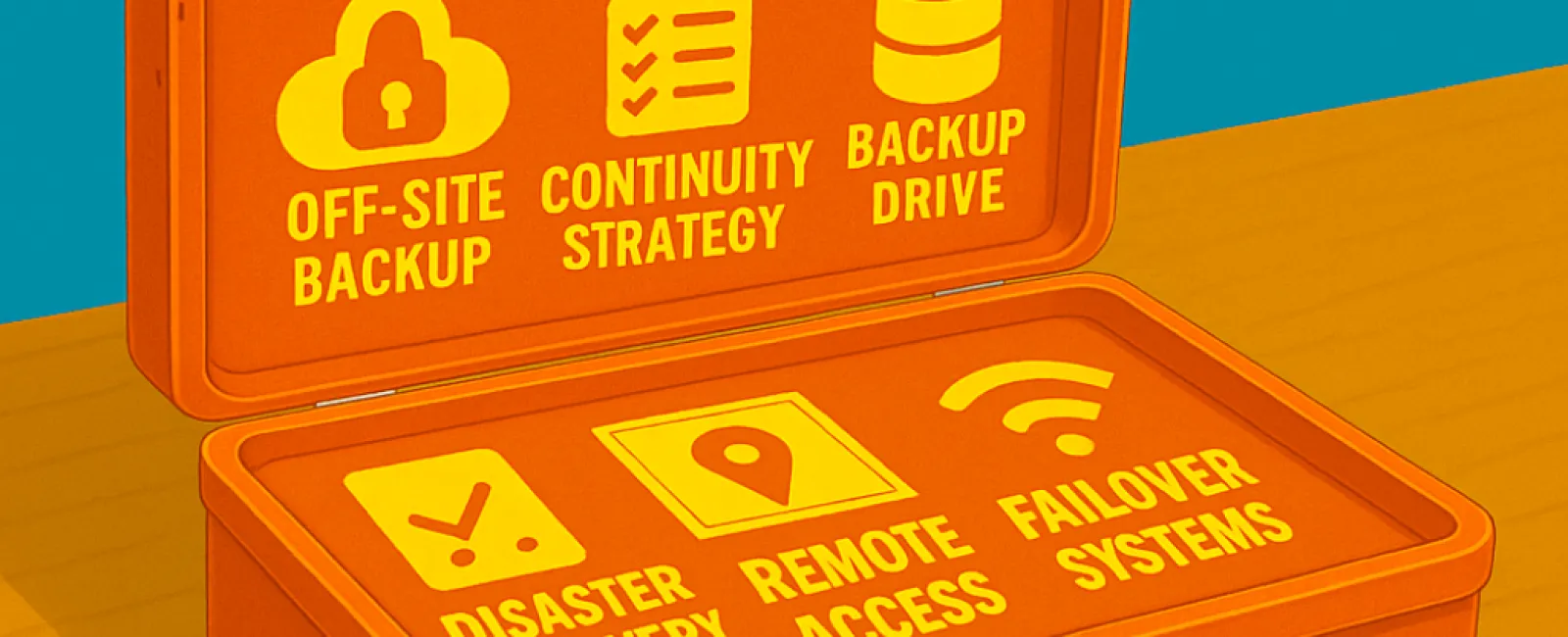July 28, 2025
Unexpected power failures, cyberattacks, equipment breakdowns, and natural catastrophes strike without notice — and for small businesses, these events can be catastrophic. Many believe that simply having backups suffices; however, restoring a file is not the same as maintaining full business operations. Without immediate system access, remote work capability, and clear communication with your team and customers, even minor interruptions can escalate into prolonged setbacks. The right IT partner offers more than backups — they deliver a comprehensive plan to keep your business thriving no matter the challenge.
Backups Alone Aren't Enough — You Need a Business Continuity Strategy
Backups are vital, there's no doubt about it. But they only cover part of your needs. The key is a strategic business continuity plan designed to keep your operations running smoothly during and after disruptions.
If your systems fail, files become unreachable, or your workplace is compromised, a backup stored locally won't help maintain operations. Without a detailed plan to restore functionality rapidly, you face risks of significant financial loss, damaged reputation, and regulatory issues.
Understanding the Crucial Difference: Backups vs. Business Continuity
Many businesses confuse these two concepts:
● Backups are for data restoration.
● Business Continuity ensures your company keeps functioning no matter the obstacle.
A strong continuity plan defines critical aspects such as:
● How quickly can recovery be achieved?
● Where can employees operate if the physical office is unavailable?
● Which systems must always be operational?
● Who is responsible for initiating the recovery process?
It also incorporates vital elements including:
● Encrypted, off-site, and tamper-proof backups
● Clearly prioritized recovery objectives (RTO and RPO)
● Full readiness for remote operations
● Redundant infrastructure and automated failover systems
● Regular disaster simulation drills to ensure preparedness
If your IT provider falters when addressing these crucial points, consider that you might not be protected — just fortunate so far.
Could This Really Happen to You?
This isn't mere alarmism — these are genuine threats with tangible impacts. Recent events show:
● Florida hurricanes forced hundreds of businesses to shutter, leaving those without cloud access immobilized.
● North Carolina flooding destroyed on-site servers, wiping out months of vital documents and invoicing.
● California wildfires obliterated entire offices in Pacific Palisades, many lacking off-site recovery solutions.
● Numerous small businesses attacked by ransomware discovered their backups were either corrupted or never tested.
Disasters don't discriminate — they impact organizations of all sizes every day.
Important Questions You Should Be Asking Today
If disaster struck tomorrow, could your business continue operating?
Discuss with your IT provider:
● How quickly can we recover from a ransomware attack?
● Are our backups routinely tested, and what systems do they cover?
● What is the contingency plan if our office is damaged by flooding or fire?
● Is our continuity planning fully compliant with industry standards and regulations?
● Can our team serve clients efficiently while working remotely?
If you can't answer these with absolute confidence, your business may already be vulnerable.
Disasters Are Inevitable, But Downtime Isn't.
While you can't prevent every power outage, natural disaster, or cyber incident, you can prepare a swift, effective response.
A reliable IT provider helps you bounce back.
An exceptional one ensures your business never misses a beat.
Want to find out where your business stands?
Click Here or give us a call at (502) 473-9330 to Book a FREE 15-Minute Discovery Call, and let's make sure a disaster never turns into downtime.



